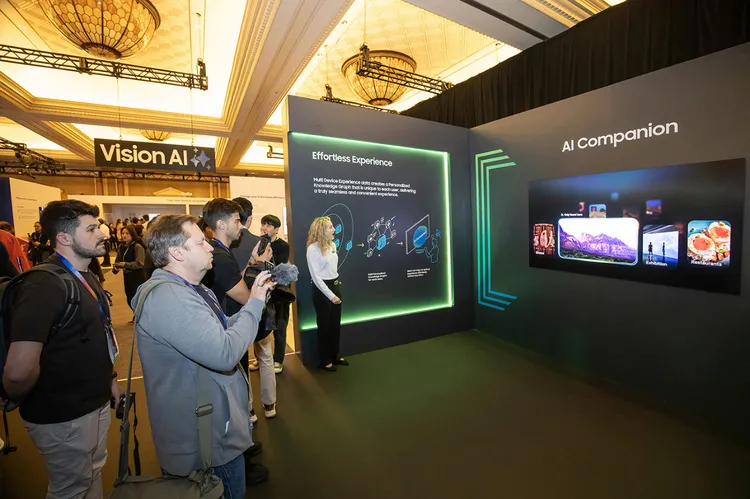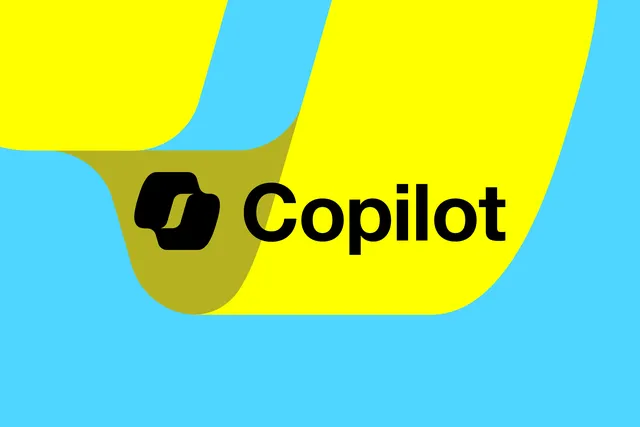Copilot on TVs seems to be nothing more than just a web app that links to Microsoft’s AI assistant.
In a bold step into the AI-powered future, LG and Samsung have announced their 2025 smart TV lineups at CES 2025, showcasing a significant new feature: integration with Microsoft’s Copilot AI assistant. Both tech giants are diving headfirst into the artificial intelligence craze, aiming to transform how users interact with their televisions. With dedicated AI sections and redesigned remotes, these new TVs promise to bring advanced intelligence to the living room. But how practical is this feature? Let’s unpack the details.
LG’s Vision: AI-Driven TVs with Copilot at the Core
LG is betting big on AI for its upcoming TVs, rebranding its remote as the “AI Remote” and introducing a dedicated AI section in its interface. While the company has been tight-lipped about the specifics, it claims that Copilot will help users “efficiently find and organize complex information using contextual cues.” What does that mean for the average viewer? Imagine searching for additional details about an actor in a movie you’re watching, getting curated content recommendations, or even managing your digital life directly from your TV screen.

Although LG hasn’t demonstrated its Copilot integration yet, the company did unveil its own AI Chatbot. This feature allows users to interact with their TVs conversationally, making it easier to search for content or control smart home devices. The Copilot integration could build upon this foundation, offering deeper insights and assistance when users want to explore topics beyond entertainment.
Samsung’s AI Ecosystem: Vision AI Meets Copilot
Not to be outdone, Samsung is launching its 2025 TVs under the Vision AI brand, which encompasses a suite of AI-powered features. From AI upscaling and Auto HDR Remastering to Adaptive Sound Pro, these TVs are designed to enhance every aspect of the viewing experience. But the highlight of Samsung’s AI efforts is its collaboration with Microsoft to bring Copilot to its smart TVs and monitors.
“This partnership will enable users to explore a wide range of Copilot services, including personalized content recommendations,” Samsung announced in a press release. The integration is part of the Vision AI section, which also includes features like food recognition on-screen and AI-enhanced home security. Samsung’s AI button on its new remotes will provide a shortcut to these advanced functionalities, positioning its TVs as more than just entertainment devices.
However, much like LG, Samsung hasn’t provided a live demo or detailed explanation of how Copilot will work. The company has promised a seamless user experience, but for now, we’re left to imagine how this feature will perform in real-world scenarios.
Microsoft’s Copilot: A Gimmick or the Future of TV?
Microsoft’s Copilot AI assistant has already made waves in productivity tools like Word and Excel, but its leap to smart TVs raises questions. How does a tool designed for organizing complex information translate to a living room setting? According to both LG and Samsung, Copilot’s role on their TVs will be to offer personalized assistance and contextual information. While this sounds promising, the lack of concrete examples or live demonstrations leaves room for skepticism.
For instance, will Copilot seamlessly integrate with streaming services, smart home devices, and other apps? Or will it end up as another underwhelming feature that fails to live up to the hype? Until LG, Samsung, or Microsoft provide more clarity, it’s difficult to gauge the true potential of this partnership.
The AI Remote Revolution
One notable trend in both LG’s and Samsung’s announcements is the emphasis on AI remotes. LG’s rebranded “AI Remote” and Samsung’s new AI button signify a shift toward making artificial intelligence easily accessible. These remotes are designed to act as gateways to the TV’s AI-powered features, from launching Copilot to controlling smart home ecosystems. By placing AI front and center, both companies are hoping to redefine how users interact with their TVs.
But this shift raises another question: Are consumers ready for AI-driven TV experiences? While some users may welcome the added convenience, others might find it overwhelming or unnecessary. The success of these AI remotes will depend largely on how intuitive and practical the features turn out to be.
The Bottom Line: Hype vs. Reality
LG and Samsung’s foray into AI-powered TVs with Microsoft’s Copilot is undoubtedly exciting, but it’s also shrouded in mystery. Without clear demonstrations or detailed explanations, it’s hard to tell whether these features will be revolutionary or just another marketing gimmick.
For now, the idea of an AI assistant that can enhance your TV experience is intriguing. If executed well, Copilot could change how we interact with televisions, transforming them into central hubs for information, entertainment, and smart home management. However, the lack of transparency from LG, Samsung, and Microsoft suggests that these companies are still ironing out the kinks.
As we await more details, one thing is clear: the race to integrate AI into everyday devices is heating up, and smart TVs are the next battleground. Whether Copilot becomes a game-changer or fades into obscurity, only time will tell. For now, consumers can look forward to seeing these innovative features roll out when the 2025 smart TVs hit the market later this year.










